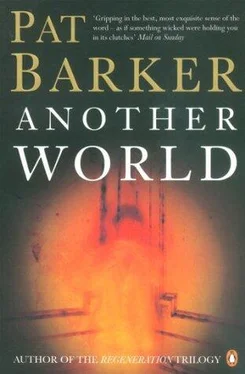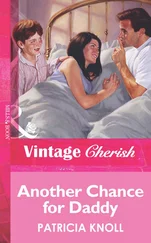Geordie stood for a full ten minutes looking up at Harry’s name, and his lips moved, causing Nick to wonder what could be left to say after so many years. Then he went to lay his wreath on the steps of the altar, standing bare-headed, while outside it began to snow again, small stinging flakes whirling about on a bitter wind. Nick stood beside him. Up to that moment he’d always disliked the easy sentiment of poppy symbolism, but then he became grateful for it, for into that abstract space, with its columns of names and its ungraspable figures, the poppies brought the colour of blood.
Geordie was attempting to graft his memories on to Nick — that’s what the visit was about — and perhaps, in spite of Nick’s resistance, he’d come close to succeeding. Something important happened to Nick at Thiepval and he’d never come to terms with it. There’d never been time. As soon as they got back Geordie started to feel ill, as if the accomplishment of that final visit had given his body permission to let go. At first tiredness, then changes in bowel function, then a constant sensation of heaviness. Nick knew before the results of the tests came through, and he suspected Geordie knew as well. But all Geordie ever said was: ‘It’s the bayonet wound playing me up.’
If Nick hadn’t gone to France he might have regarded Geordie’s theory as merely ignorant, but he’d stood beside him in the empty arches of Thiepval, looking up at Harry’s name on the wall, and from that perspective Geordie’s belief in the power of old wounds to leak into the present was not so easily dismissed.
In the hospital Nick stares blankly at the empty bed. He isn’t prepared for this. How can they not have been told? Why didn’t they ring? But perhaps they did. Perhaps they rang Frieda, but she couldn’t contact him. A nurse squeaks up on rubber-soled shoes. ‘Are you looking for Mr Lucas?’
‘Yes.’
‘He’s in a side ward.’
Nick goes back along the ward, where men anonymous in pyjamas turn to stare at him as he walks past. He stares through the portholes in the doors of the side wards, and spots him at last. He pushes the door open. The sides of the bed have been raised. It looks as if he’s lying in a cot. Eyes tightly closed, humiliation visible in every muscle of his clenched jaw.
‘How are you, Grandad?’ Nick smells the sourness of sweat on his skin as he bends to give him a hug.
A nurse follows him into the room. ‘He was in the sluice room last night at two o’clock,’ she says. ‘Weren’t you, love?’
Geordie doesn’t answer her.
‘What were you doing in there?’ Nick asks after she’s withdrawn and left them alone.
‘God knows.’
‘Dreaming?’
‘Something like that.’
Nick thinks: I can’t bear this, and a second later is appalled by the selfishness of his response. If Grandad can bear it, he can.
‘It’s the pills,’ Geordie says. ‘I’ve never been one for pills.’
It’s not the pills, and they both know it, but somehow the hospital prescribes the kind of conversation they can have with each other. Nick just wants to see Geordie back in his own home, in his own bed, as fast as possible. ‘I forgot to mention it this afternoon,’ he says. ‘Helen wants to know when she can come and see you?’ When there’s no reply he adds, ‘You remember Helen?’
‘Of course I remember Helen, I’m not daft.’
‘What shall I tell her?’
‘I don’t want her seeing me like this.’
He always made a fuss when Helen was coming. Got bathed, shaved, wore a suit and a tie. Frieda used to say, ‘Look at him, all done up like a shilling dinner. His girlfriend must be coming,’ and bizarrely, behind the teasing, there was real jealousy.
‘Give it a few days,’ he says now, reluctantly, and then, abruptly, brings up the real problem. ‘I want these bloody bars down. I’m like a ruddy great baby sat up in a cot. I can’t have anybody seeing me like this.’
‘They’ll put them down in the morning.’
‘They’d better. If they don’t I’m out of here.’
Nick grips his wrist through the bars. ‘I should be going now. I’ll see you at the weekend.’
‘Aye. Perhaps.’
‘Now what’s that supposed to mean?’
No answer.
‘Auntie Frieda’ll be in tomorrow.’
Nick hovers, knowing that in his grandfather’s position he would find this lingering impossibly irritating. He bends down and holds the thin shoulders whose bones seem to become a little more prominent every day. Old soldiers never die — they only fade away. Though the man who shouts and rages and cries out for Harry in the kitchen or the sluice room isn’t fading away, whatever else he’s doing. ‘I’ll ring and see how you’re getting on,’ he says inadequately, and then walks out down the grey shining corridor, past the WRVS stall with its flowers and balloons and fruit, and out into the car-park, where the stars burn pale against the sodium orange of the lights.
At the exit from the motorway Nick hesitates, then, to the immense irritation of the driver behind him, flicks his indicator from right to left and drives to a row of terraced houses not far from the University library. Four-storey substantial Victorian houses, divided into elegant, expensive flats. Helen has the top floor of one of them. A beech tree, its leaves a virulent green in the light from the street lamp, reaches to her windows.
Nick knocks, hears the television news switched off and then Helen appears, barefoot, in jeans and T-shirt, short dark hair spiked around her ears. ‘Nick,’ she says. ‘How are you?’
‘Not so bad.’
‘Come in.’
This is what he needs, he realizes, following her through into the living room, though it’s probably not what he ought to need.
‘Coffee?’
‘Please.’
‘Or beer?’
‘Beer would be better.’
The fridge door bangs shut. She comes back into the room hugging cans with a cold sweat on them to her chest, and hands one over. ‘Here you are.’
Sweeping piles of books off the sofa on to the floor, she peels open her own can and applies her mouth to the white foam that bubbles out, laughing and flicking beer from her hands as she sits back. ‘So how are you really?’
‘All right.’
She waits. Don’t pull that one, he thinks. I do the silences.
‘Geordie’s dying.’
‘Oh, Nick, I am sorry.’
‘You’re the only one.’ This comes out so much more bitter than he intended that he reins himself back. ‘Well, you know, I get a bit fed up with people saying, Perhaps it’s for the best, he’s had a good innings…’
‘You’ll miss him.’
‘Yes.’
‘So will I.’ She attempts a smile. ‘Won’t have anybody to flirt with now.’
‘Oh, you’ll find somebody, I expect.’
‘What’s wrong?’
‘Cancer. They’ve done an exploratory operation. Secondaries all over the place.’
‘Is he having radiotherapy?’
‘There’s no point. It’d just mess him about, and it wouldn’t give him that much longer anyway.’
‘Can I see him?’
‘Give it a few days,’ Nick says awkwardly. ‘The thing is they’ve put the sides of the bed up and he’s so upset about that he can’t think about anything else.’ He hesitates, because telling anybody this, even Helen, seems like a betrayal. ‘He’s taken to wandering about in the middle of the night.’
‘But he’s not confused. Not when I saw him.’
‘No, but you can see why they think he is. He’s back there. Poor old Frieda gets mistaken for the German army. I mean, I don’t think it’s confusion because I think he’d be showing signs of it the rest of the time. It sounds like flashbacks, but why should he suddenly start doing that again?’
Читать дальше












